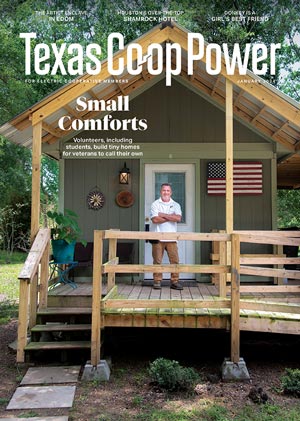Because heating and cooling can make up nearly half your electricity use, you may experience sticker shock when you open your electric bill. Instead of waiting until after a potentially high bill arrives in your mailbox or inbox, be proactive. There are steps you can take now to help manage your energy use efficiently and spend less.
• Add insulating wraps to exposed pipes and water heaters located in unheated spaces.
• Make sure to change your air filter regularly to keep your system running efficiently.
• Keep drapes closed at night to block out the cold, and keep those that don’t get direct sunlight closed during the day, too. Open shades on sunny windows during the day to take advantage of natural warmth.
• Make sure the fireplace damper is closed when it’s not in use. Keeping it open can bring cold air into the room.
• Caulk around your hearth, and caulk or weatherstrip around doors, windows and even electrical outlets on exterior walls.
• Block any areas in your home that are particularly drafty, including around window frames and under doors.
• Use a humidifier. Humid air generally feels quite a bit warmer than dry air. Running the heater in the colder months can strip your indoor air of its humidity. A humidifier can balance this. Look for models that allow you to choose between warm and cold air; they typically cost more but are well worth it for the heating ability.
• Reverse the ceiling fan. It may seem counterintuitive to use a ceiling fan when you’re feeling cold, but it actually can help to warm you up. Let your ceiling fan turn at a low speed in a clockwise direction during colder months. This will help to push the warm air that rises toward the ceiling back down toward floor level.
• Dress for the weather, even when you’re inside. Wearing long sleeves and pants, thick socks, slippers or shoes—even indoors—or wrapping up in a cozy blanket will help combat the temptation to bump up the thermostat. Dressing in layers can also help.
• Enjoy hot drinks and food such as soups and stews to keep yourself warm. Using a slow cooker, microwave or air fryer could help reduce food preparation costs compared to an oven-baked meal.
• Keep as active as possible to boost circulation. Move around at least once an hour and avoid sitting still for long periods. Even light exercise will help keep you warm.
When you do sit down, put your feet up because it’s coldest nearest the ground.
Obstacles To Saving
Using the tips above can certainly help you manage your energy use, but your bill may still be higher than normal in winter months. Why?
The weather has a big impact on electric bills. Even those with the most efficient HVAC systems will see more use in extreme weather.
When extreme cold hits, heaters work overtime. For example, even if you set your thermostat to the recommended 68 degrees in the winter, if it’s 19 degrees outside, your system has to work hard to make up that 49-degree difference.
Your heater works harder and cycles on and off more often in colder weather, making your energy use much higher. That means your electric bill will be noticeably higher. There’s value in comfort, of course. But for us to be comfortable in our homes, our heaters will have to work harder.
Don’t wait until after you receive a high electricity bill this winter to start taking energy-saving measures. Be proactive about your energy use habits so you aren’t caught off guard. Your electric cooperative is here to help.


